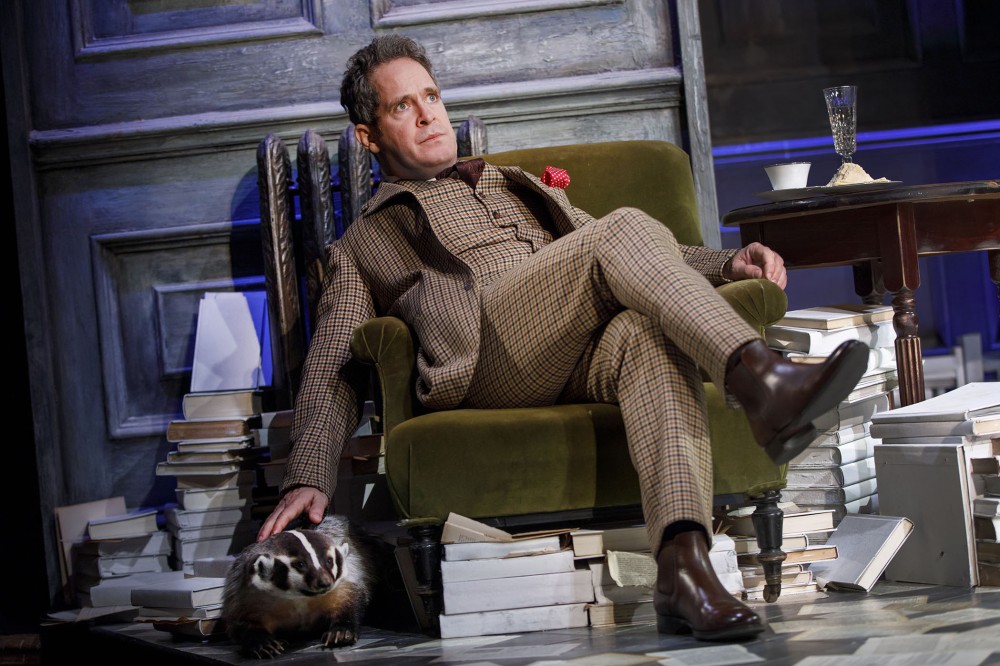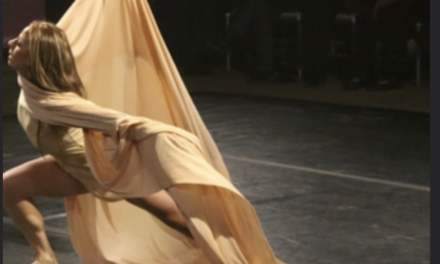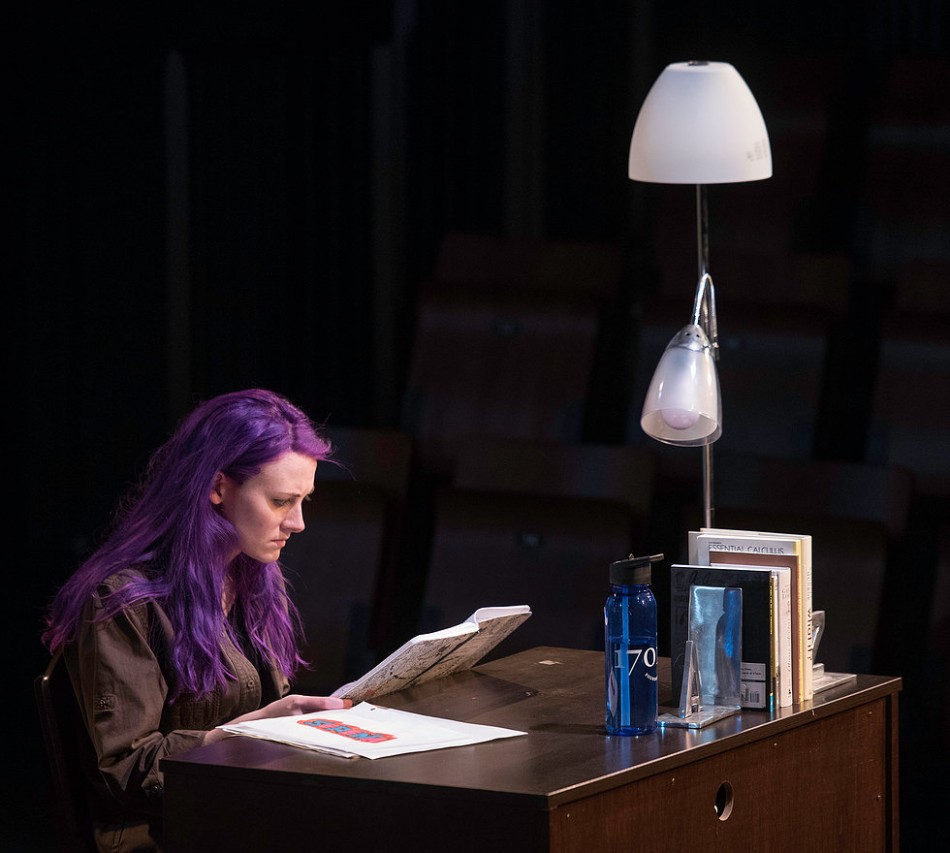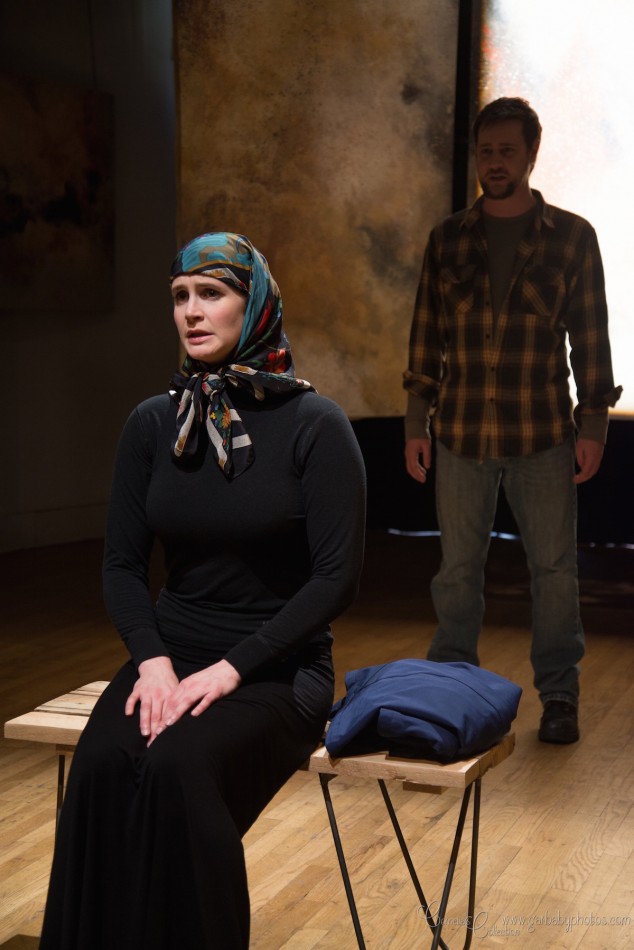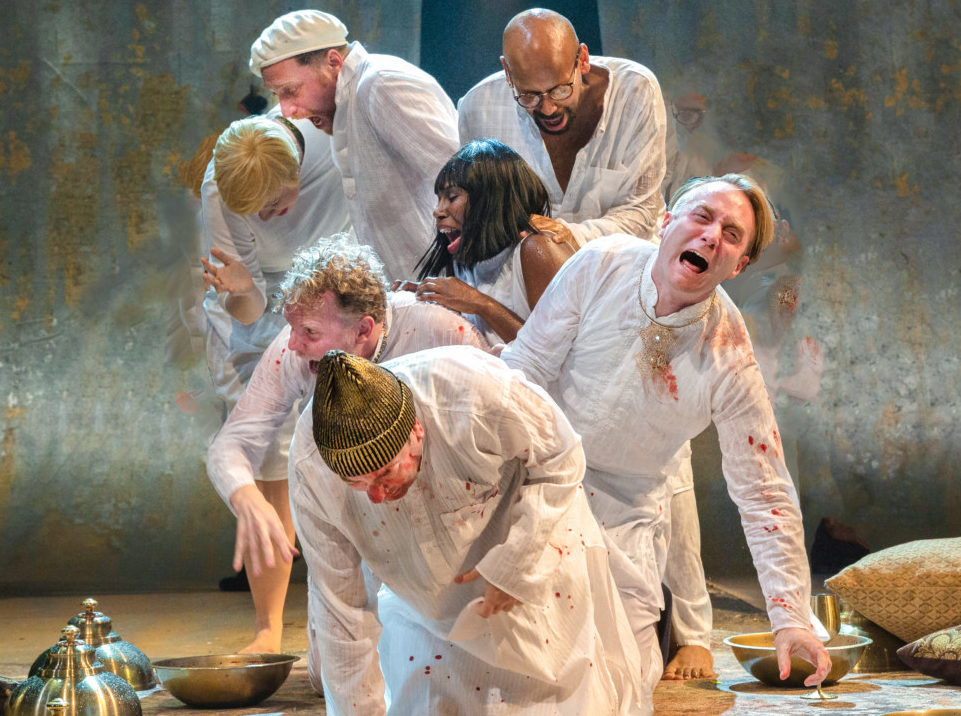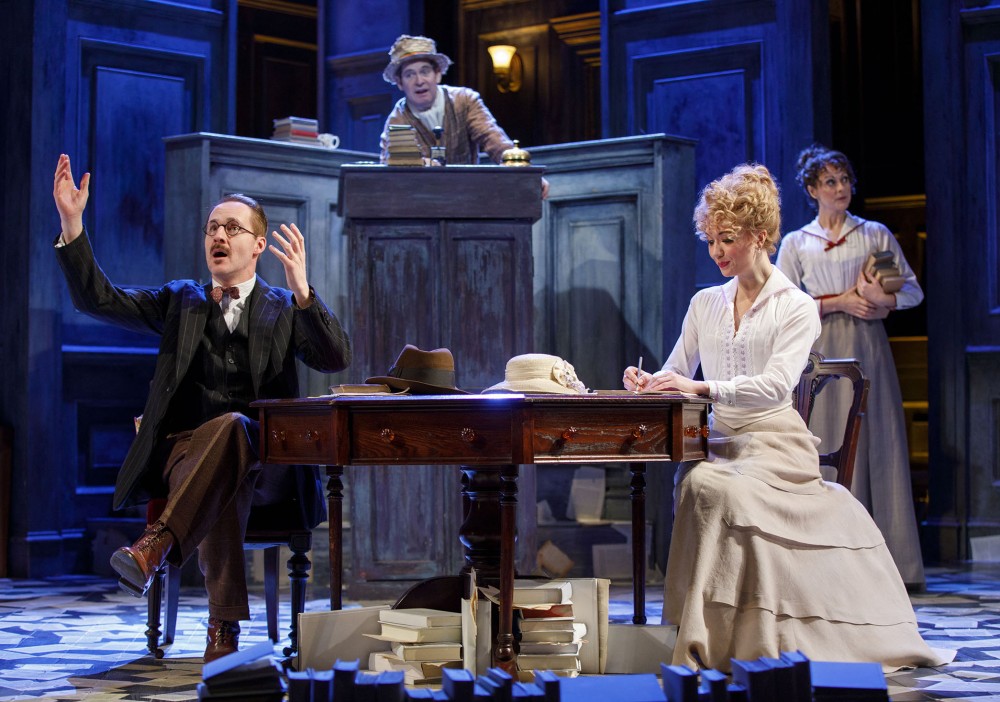
Peter McDonald, Tom Hollander, Scarlett Strallen and Sara Topham
by JK Clarke
James Joyce, Vladimir Lenin and Tristan Tzara (one of the founders of Dadaism) are hanging out in Zurich . . . sounds like the setup to one of those “guy walks into a bar” type jokes, right? Well, it sort of is, but in long, theatrical form in the guise of Tom Stoppard’s 1974 masterpiece, Travesties, which opened last night in its first Broadway revival since winning the Best Play Tony in its 1975 debut.
Travesties is a fictitious construct of the musings and scattered, senile memories of another man, Henry Carr (Tom Hollander) who, as a military bureaucrat, was in Zurich, Switzerland in 1917 along with the aforementioned revolutionaries. This was during the height of World War I, which waged all around the neutral territory, while never touching it directly. The play, an absurd, distorted homage or imitation (a “travesty”) of Oscar Wilde’s The Importance of Being Earnest, among other works, attempts to imagine the interactions of these historically important characters—who are both fundamentally different from each other at the same time as similar in their uniqueness and superiority to others of their era.
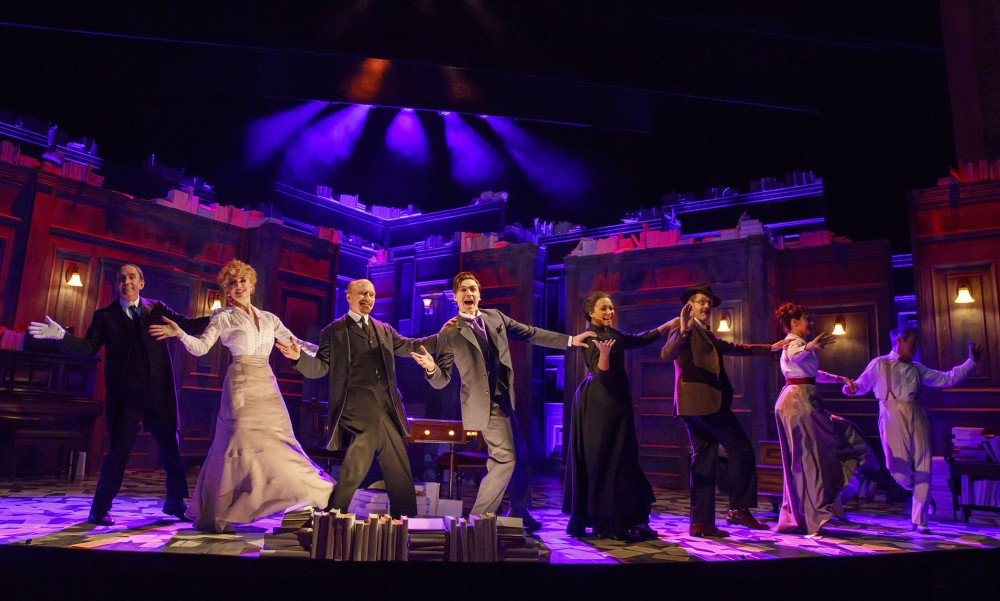

Patrick Kerr, Scarlett Strallen, Dan Butler, Seth Numrich, Opal Alladin,Peter McDonald, Sara Topham and Tom Hollander
The detail and complexity of Travesties will prove a delight to some audiences and a burden to others. The play requires at least a rudimentary understanding of who the figures are, as well as familiarity with Dadaism and deconstructionist artistic movements of the early 20th century. It is the absolute antithesis, and likely a welcome relief for many theatergoers, to the simple banality of a production like Escape to Margaritaville. Yet, there’s an ultimately approachable aspect to the play: a humorous portrayal of the absurdity of elitist “types,” which, at least superficially, allows it to be accessible to most audiences.
It’s in both the pseudo-parody and absurd take on radical figures that the humor comes in. Not unlike one of those wildly ridiculous Monty Python sketches (contemporaneous with the writing of this play, so one must assume Stoppard was a fan), such as “Philosopher Football,” in which German philosophers (Wittgenstein, Kant, Hegel, etc.) play a soccer match (poorly) against the ancient Greeks (Plato, Aristotle, Archimedes, et al); or “Communist Quiz Sketch” in which Mao Tse-tung and Che Guevara compete with Marx and Lenin in a game of soccer trivia.
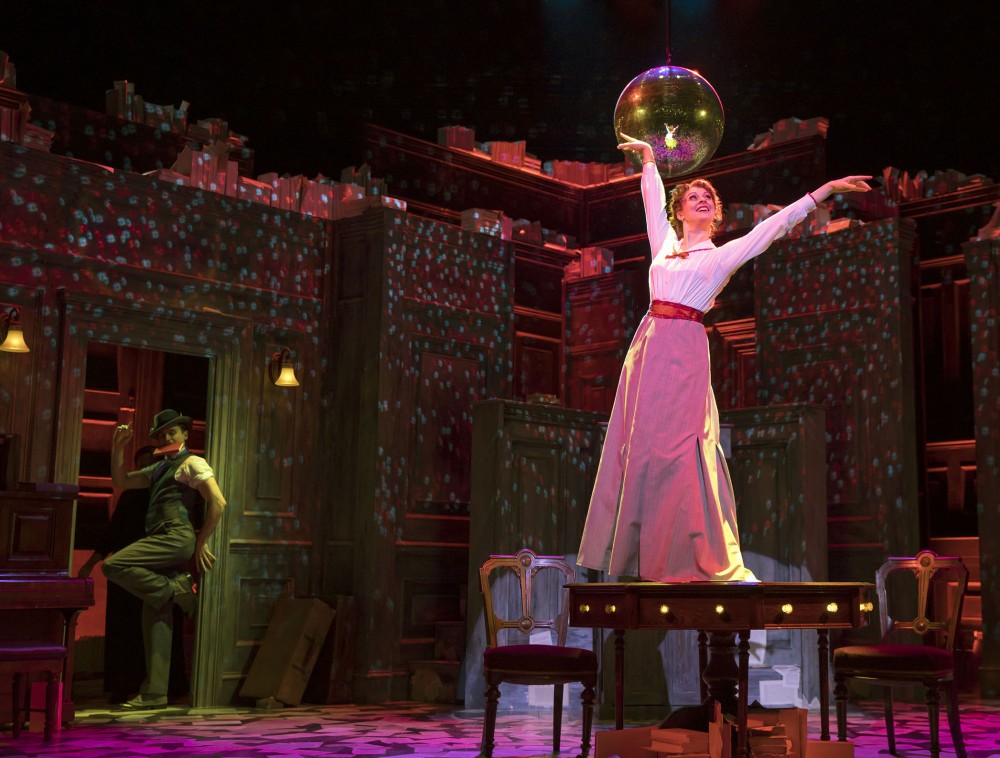

Seth Numrich and Sara Topham
Here, however, it’s Tzara (Seth Numrich) traipsing through the Zurich library, disturbing the peace by cutting up poems, tossing the words into a hat, then picking them out to form new poems (a deconstructionist exercise popular at the time among the avant-garde); and Joyce working on Ulysses and launching into Seuss-esque rhymes designed to denigrate the act: “A Romanian rhymer I met/ used a system he based on roulette./ He’d cut up a sonnet/ Shake it round in his bonnet/ But he’s not pulled a poem out yet.” Meanwhile, Lenin is off in a corner, furiously scribbling Bolshevik screeds.
Travesties as a play mirrors the themes and arguments of the destruction of the notion of art and artist. Just as the Dadaists believed art no longer needed rules because the world, in the midst of a bloody and chaotic war, no longer had any, the play has no traditional boundaries.
CARR: . . . you are simply asking me to accept that the word Art means whatever you wish it to mean; but I do not accept it.
TZARA: Why not? You do exactly the same thing with words like patriotism, duty, love, freedom, King and country . . .
Hence, at the ringing of a bell on a librarian’s desk, scenes are restarted, beginning familiarly, then veering off in another direction entirely; characters emerge unexpectedly from cupboards, and historic figures—like Lenin—are posed in preposterous circumstances: dressed, variably, like Shakespeare or a priest and later dancing and singing in a chorus line.
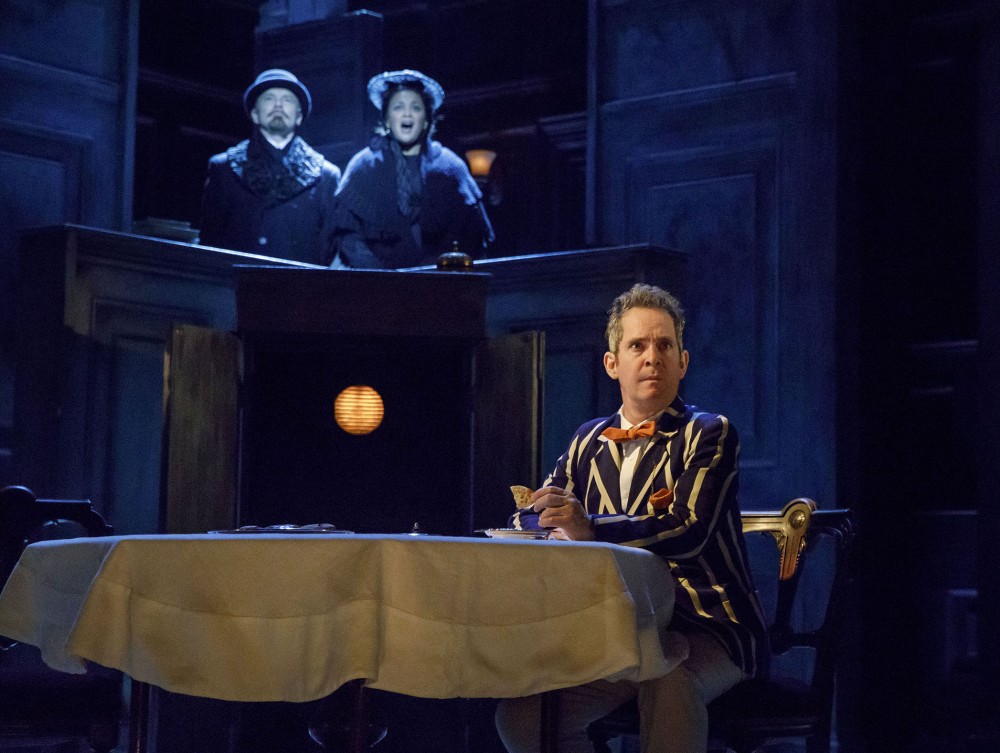

Dan Butler, Opal Alladin and Tom Hollander
It takes an exquisite creative team and cast to pull off a play like Travesties. To make it accessible to an audience up to the challenge of digesting a text about which countless Masters’ theses have undoubtedly been written. In this production, imported from London’s Menier Chocolate Factory, where it ran on the West End, director Patrick Marber has pieced it all together just right. It’s elegantly displayed through Tim Hatley’s gorgeous period costumes (and often amusing getups) and versatile, imaginative set that is both an Edwardian library stacked with papers, but a mountain of sorts, piling high into the rafters. Tables are magically transformed into go-go platforms with unexpected runner lights (Neil Austin) as the library becomes a dance space, with the help of Adam Cork’s clever sound design, and a cabinet opens and becomes the headlight of a train, spiriting Lenin back to Moscow (and into the history books).
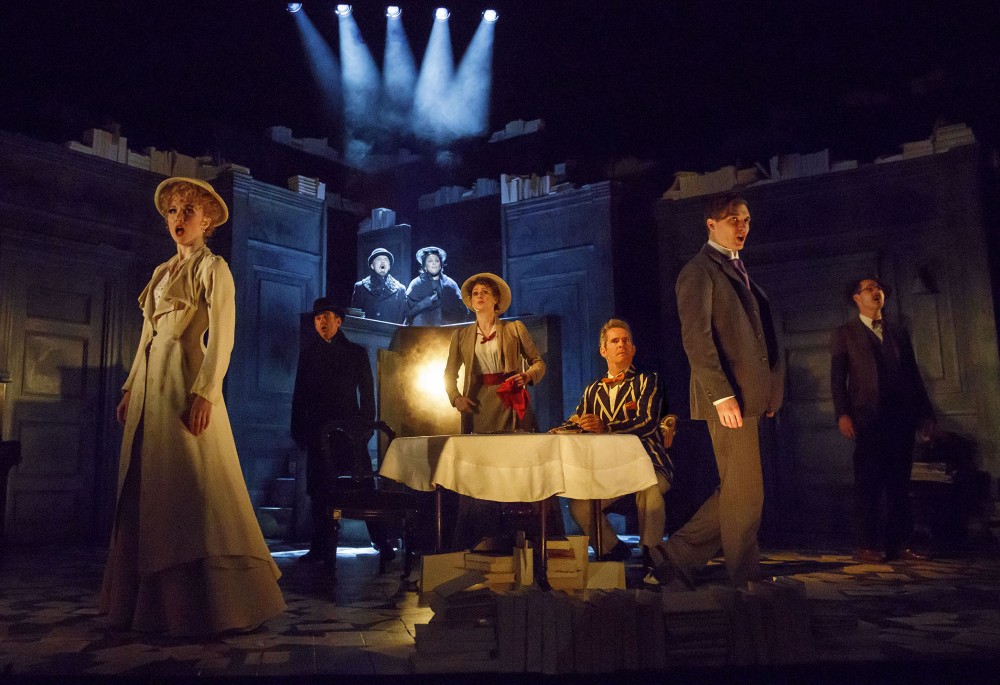

Scarlett Strallen, Patrick Kerr, Dan Butler, Opal Alladin, Sara Topham, Tom Hollander, Seth Numrich and Peter McDonald
What’s more, the cast is magical. Hollander’s young and old Carr is delightfully complex; Sara Topham is a charming, high-kicking (in a near-burlesque number) Cecily; Peter McDonald’s foppish James Joyce is stunning in his physical resemblance to the great scribe, but also hilarious and multi-talented. But it’s really Seth Numrich’s Dada dandy Tristan Tzara who runs away with the show. He too, is incredibly funny, but also lithe and graceful as he dashes about the set. He makes his prig of a character probably far more likeable than he was in reality.
Travesties isn’t for everyone. Audiences looking for a lark will likely be lost. But those who are willing to focus on the rapid fire, complex dialog will be delighted by the delivery. Those already familiar with the play will likely be delighted as well. One walks away from Travesties not full of empty calories, but exhausted and happily challenged and entertained.
Travesties. Through June 17 at the American Airlines Theatre (227 West 42nd Street, between Seventh and Eighth Avenues). Two hours and 30 minutes with one intermission. www.roundabouttheatre.org
Photos: Joan Marcus


